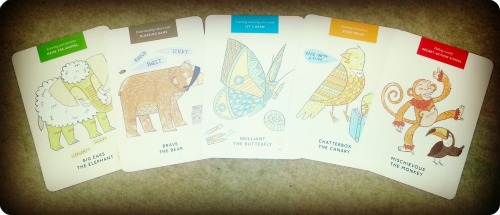Before you can write you need to be able to read, and before you can read you need to be able to speak.
Developing oracy in young children is essential: it helps them communicate with the world, express their emotions, desires and intentions, and encourages social interaction.
"Mummy, I'm trying to concentrate!"
"Actually mummy, that's a hexagon not an octagon."
The Boy talks. A LOT! And yes I'm aware that I sound like every other mum out there who's proud of their child and wants to 'show off', but that's not my intention. I talk a lot, and I have always chatted to The Boy no matter what we're doing. It shows because he chatters away nineteen to the dozen, and is quite confident to start a conversation with someone and explain his thoughts. I put a lot of this down to the parent-facing pushchair that we used to use and the fact that his baby car-seat was next to me on the front seat. We were able to communicate all the time.
Last week I spent time in the nursery unit in school, and it was an eye-opener for me to see 'elective mute' children, among other children who had difficulty articulating the most basic of needs and thoughts. It made me realise that just because The Boy has difficulty pronouncing 'l' or 'r' correctly, it doesn't mean that he has difficulty with his speech. My time there compounded the research conducted which shows that in some areas of the UK, over half the children starting school don't have the skills they need to learn, make friends and succeed.
I was sent a fantastic activity set a few weeks ago called 'Chatting With Children' by I CAN (The Children's Communication Charity). The pack contains a parent guide to the enclosed games designed for 3-5 year olds to support speech, language and communication development. The guide describes why oracy is so important, and that there are specific key skills needed for learning to talk:
- listening and attention ('Concentrate on what I'm saying' has been a common phrase in this house, to Mr. TBaM as well as The Boy!);
- understanding what is said;
- learning and using new words (The Boy is very good at rolling words around in his mouth until he pronounces them correctly);
- speaking in sentences;
- talking socially (modelled language from the adults in their life).
The games are on a set of cards (about the size of a paperback) and can therefore be used at home or out and about. The set allows for games to be dipped in and out of, as required, but they are designed to be used every day and a six-week programme has been included. I really like the programme (and cards) because it is split into an activity for each area of Oracy skills, one for each week with a theme assigned like food, animals or clothes.

This set of cards above are some of the activities suggested for the week on 'Animals' and include: 'Name The Animal' (applying information to previous knowledge), 'Guessing Game' (listening to information and drawing conclusions), 'Let's Draw' (learning positional language), 'Story Relay' (linking sentences to make stories), and 'Secret Action Signal' (encouraging eye contact).
I think this is an excellent set of cards to help prompte Oracy with young children. Even though The Boy talks for Britain, we still love having a go at the games and it has helped him to develop deeper Oracy skills; essential to help him when he starts school next year.
The I CAN Chatting With Children pack is available directly from I CAN for £7.99.
I was sent this product for the purpose of this review. My opinion is honest and unbiased.


no too many children are spoken at rather than spoken too. dumped in front of a tv to occupy them, and never really hold a 2 way conversation with an adult. The Boy is very luckt to have good parents.
I agree, this is a great set of cards. Jack's preschool love them so much they've borrowed them to use with all the children, Jack may be a chatterbox at home but sometimes it takes him a while to 'warm up' with his peers so the cards have been great to get him & his friends chatting & joining in more.
I think The Boy would have always been a chatterbox regardless of your pushchair & car seat position, Jack wasn't in a parent facing buggy & his car seat was always in the back but I think with chatterbox parents a child is always going to follow…..jeez I can waffle can't I!